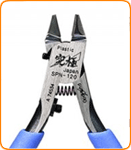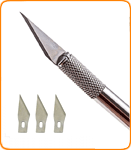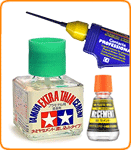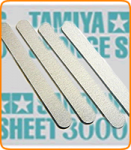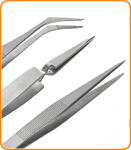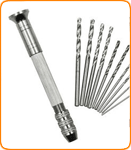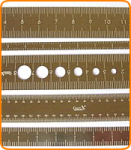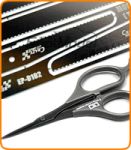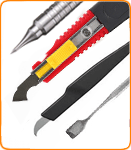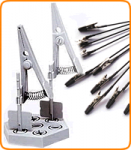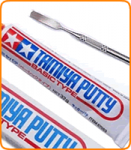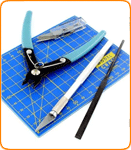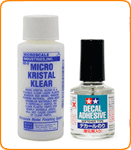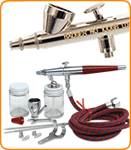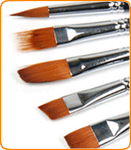Model Factory Hiro K840 1/12 2J 1970 Can-Am Rd.9 Laguna Seca #66 Vic Elford
Kit Details
- based on Car #66 driven by Vic Elford during Rd.9 of the 1970 Can-Am season (at Laguna Seca Raceway)
- a fully detailed, multi-material kit featuring white metal, resin, etching, turned parts, rubber tires, silk screen decals and various cords allowing for maximum representation of the original vehicle.
- aluminum turned parts used for wheel rim, muffler end, and cockpit meters.
- doors can be open and closed, and front cowl & rear cowl can be removed post construction allowing for view of the detailed interior after completion.
- decals printed by Cartograf.
Jim Hall was an engineer and racing driver who bought many new innovations to the racing scene during the 1960s and 1970s aiding in the evolution of the sport. Born in Texas, US, Hall competed in Formula One as a driver in the early 1960s, and also founded Chaparral Cars with the goal of building his own original race cars around the same time. The factory, located in Midland, Texas, included a test track called the "Rattlesnake".
It was here that Hall designed and built his first car in 1963 - the 2A. It featured a monocoque made of FRP, which was innovative at the time as non-metals were not used for monocoques until the 1980s where carbon fibre would become mainstream. The 2A, with its white painted body that became synonymous with Chaparral Cars, won the 12 Hours of Sebring in 1965 with Hall driving it to victory over powerhouses such as Ferrari and Ford.
Hall and Chaparral Cars went on to create a series of innovative cars: the "2C" featuring a hydraulic moving wing, the "2D" which was a 2A modified for Group 6 that won the 1000 km Nurburgring, the "2E" with a high-mounted wing, and the "2F". Due to racing regulation changes in Europe in 1968, Hall would switch his focus to Can-Am racing in the U.S. instead. In 1969, Hall introduced the "2H," - designed in such that the entire car acted as a giant wing, which could be said to be the forerunner of later winged cars. Despite the novelty, the car did not perform well.
Hall then developed an even more innovative machine for the season of 1970 - the "2J". Apart from the main V8 big-block engine, the 2J was powered by a 274cc snowmobile engine, which rotated two fans that sucked air out of the square body to generate strong downforce - a similar concept done by the Brabham BT46B F1 car 8 years later. The 2J showed potential during the 1970 Can-Am season by taking pole position in several qualifying sessions, however it failed to leave a mark as minor issues occurred frequently during the main race that lead to it's retirement. The 2J would only race during this season, as revised regulations for Can-Am in the following season banned the use of the machine from 1971 and on.This prompted Hall's decision to temporarily withdraw from Can-Am.
This marked an end to Hall and Chaparral Cars' journey to the top of the racing world. In terms of performance the 2J may have been a failure, but it reflected the brilliance of Chaparral Cars' machines and J.Hall's passion to pursue new possibilities, which will never fade away and remain an important part in racing history.
- based on Car #66 driven by Vic Elford during Rd.9 of the 1970 Can-Am season (at Laguna Seca Raceway)
- a fully detailed, multi-material kit featuring white metal, resin, etching, turned parts, rubber tires, silk screen decals and various cords allowing for maximum representation of the original vehicle.
- aluminum turned parts used for wheel rim, muffler end, and cockpit meters.
- doors can be open and closed, and front cowl & rear cowl can be removed post construction allowing for view of the detailed interior after completion.
- decals printed by Cartograf.
Jim Hall was an engineer and racing driver who bought many new innovations to the racing scene during the 1960s and 1970s aiding in the evolution of the sport. Born in Texas, US, Hall competed in Formula One as a driver in the early 1960s, and also founded Chaparral Cars with the goal of building his own original race cars around the same time. The factory, located in Midland, Texas, included a test track called the "Rattlesnake".
It was here that Hall designed and built his first car in 1963 - the 2A. It featured a monocoque made of FRP, which was innovative at the time as non-metals were not used for monocoques until the 1980s where carbon fibre would become mainstream. The 2A, with its white painted body that became synonymous with Chaparral Cars, won the 12 Hours of Sebring in 1965 with Hall driving it to victory over powerhouses such as Ferrari and Ford.
Hall and Chaparral Cars went on to create a series of innovative cars: the "2C" featuring a hydraulic moving wing, the "2D" which was a 2A modified for Group 6 that won the 1000 km Nurburgring, the "2E" with a high-mounted wing, and the "2F". Due to racing regulation changes in Europe in 1968, Hall would switch his focus to Can-Am racing in the U.S. instead. In 1969, Hall introduced the "2H," - designed in such that the entire car acted as a giant wing, which could be said to be the forerunner of later winged cars. Despite the novelty, the car did not perform well.
Hall then developed an even more innovative machine for the season of 1970 - the "2J". Apart from the main V8 big-block engine, the 2J was powered by a 274cc snowmobile engine, which rotated two fans that sucked air out of the square body to generate strong downforce - a similar concept done by the Brabham BT46B F1 car 8 years later. The 2J showed potential during the 1970 Can-Am season by taking pole position in several qualifying sessions, however it failed to leave a mark as minor issues occurred frequently during the main race that lead to it's retirement. The 2J would only race during this season, as revised regulations for Can-Am in the following season banned the use of the machine from 1971 and on.This prompted Hall's decision to temporarily withdraw from Can-Am.
This marked an end to Hall and Chaparral Cars' journey to the top of the racing world. In terms of performance the 2J may have been a failure, but it reflected the brilliance of Chaparral Cars' machines and J.Hall's passion to pursue new possibilities, which will never fade away and remain an important part in racing history.
| General Info | |
| Scale | 1/12 |
| Type | Scale Model Kit |
| Subtype | Racing Car |
- Stock: Out Of Stock
- Reward Points: 1176
- SKU: MFH-K840

Model Factory Hiro
US$764.34
(excl. Tax)
"In-Stock" Really Means It
Combine Shipping & Save
SAME or Next day shipping*
Pay in 4 interest-free payments of US$191.09. Learn more
There are no reviews
Maybe you can help? Many users will be grateful to you. And so are we.





















